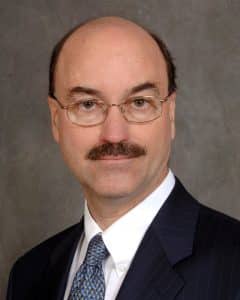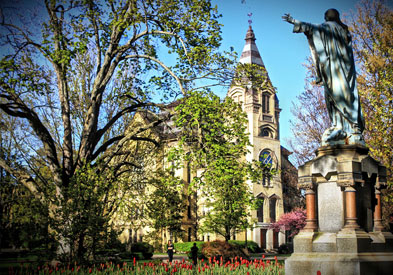October 31, 2016

The program of Pope Francis for interreligious relations is quite simple but can be life-transforming: be friends and help the world. This converges strongly with the agenda of Interfaith Youth Core, which I have heard described as: help the world and be friends. Pope Francis makes this appeal at a time of international crisis that he has described as a type of Third World War. In a time of conflict, he calls the Catholic Church to serve as a field hospital for the wounded, and he appeals to us to work for interreligious understanding and acceptance and together to address the problems of the world.
Catholics leaders reflect on interreligious relations in light of four dimensions, which overlap: (1) the dialogue of life, which focuses on being good neighbors in a shared world; (2) the dialogue of action, which focuses on cooperation for justice, peace, and care for the earth; (3) the dialogue of spirituality, which focuses on sharing religious experiences of prayer, meditation, and spiritual life; and (4) the dialogue of doctrine, which focuses on philosophical and theological perspectives. While all are important for Catholic colleges and universities, the central challenge from Pope Francis, to be friends and help the world, focuses our primary attention on the dialogues of life and action.
In many areas of the world, it is extremely difficult if not impossible to be good neighbors, let alone to be friends and work together on any common concern. Often the obstacles seem overwhelming and the resources all too few. In the academic world and beyond, one of the most influential theses of recent years is the claim of Samuel Huntington that we are in a historic clash of civilizations, shaped largely by religious differences. The great danger of this claim is that if enough people believe it, it can become a self-fulfilling prophecy. The Catholic Church, inspired by the vision of the Second Vatican Council, has been among the leaders in opposing this vision. The Second Vatican Council boldly proclaimed that “All peoples are one community” because of our common origin and destiny (NA #1). The implications are spelled out in the famous opening words of Gaudium et Spes: “The joys and hopes and the sorrows and anxieties of people today, especially of those who are poor and afflicted, are also the joys and hopes, sorrows and anxieties of the disciples of Christ” (GS #1).
For Catholic colleges and universities, interreligious understanding in this time of crisis is one of the most important imperatives facing us as Catholic educators. How do we understand our religious neighbors, and how do we relate to them locally, nationally, and internationally, in order to shape a healthy community of religions? This task is intrinsically relational and must be done in dialogue with followers of other religious traditions. This is not a task for theology alone. It is an interdisciplinary challenge that runs across all the humanities and the social sciences. For example, at Georgetown University our Center for Religion, Peace, and World Affairs brings together political scientists, sociologists, experts in development, and scholars of various religions together with Christian theologians to reflect on the role of religions in the world.
Jesus taught us that if we recall a difficulty with our brother or sister, we should leave our gift at the altar and go first to be reconciled, and then come back to make the offering (Mt 5:23-24). The emerging discipline of reconciliation studies has a special role in this regard. Historically, in 1960 the Institute for Judaeo-Christian Studies at Seton Hall University played an important role for the universal Church when it submitted a petition to the Central Preparatory Commission for the Second Vatican Council asking that the council condemn anti-Semitism and improve the Catholic Church’s relation with the Jewish people. The recent document from the Pontifical Commission on Religious Relations with Jews, The Gifts and the Calling of God are Irrevocable, and responses from Jewish leaders like Alon Goshen-Gottstein, remind us that we have just begun to reflect theologically on the full implications of Nostra Aetate, the Jewishness of Jesus and his first followers, and the network of overlapping identities and relations involved in Christian origins. The more we acknowledge Jesus as a Jew, the closer we come to Muslims. Another major debate currently underway concerns the relationship of Jewish Christianity to the origins of Islam. In each relationship boundaries are important but often porous.
In situations where there is distrust and conflict, reconciliation often begins with getting to know a person from another tradition. Some years ago I chaired a week-long series of conversations on Buddhist-Catholic dialogue around the world. Many Buddhists commented on their deep suspicion of Catholics because of the history of European empires, but people from all around the world agreed that the key to Buddhist-Catholic dialogue is lunch. Over lunch people get to know each other, share their concerns, their problems, their hopes. One of the Buddhist women commented that for her the great learning of Buddhist-Catholic dialogue was: “Not all Catholics are bad. There are a few good ones.” Bonds of trust can be built that then lead to deeper understanding and healing of past wounds. This can provide a basis for common action.
Interreligious dialogue begins with the local situation. Each teacher has a distinctive context. As Catholic educators, we can play a vital role in bringing people together. As Catholics, we enjoy a power of convening that we may or may not be aware of. Because of the world-wide influence of the Second Vatican Council and the initiatives of recent popes, if we invite people, in many contexts they will come. Last December, at a time of increasingly hostile rhetoric regarding religious difference in our national public debate, the president of Georgetown University reached out on one week’s notice, inviting leaders to come to an Interfaith Prayer Gathering. Usually it takes much longer to prepare such a gathering. But there was a widespread sense that something had to be done. Vice President Joseph Biden attended, as did Cardinal Donald Wuerl and leaders of many other religious traditions, including Imam Talib Shareef, the president of The Nation’s Mosque, Rabbi Bruce Lustig of Washington Hebrew Congregation, the Right Rev. Mariann Edgar Budde, bishop of the Episcopal Diocese of Washington, Bhai Gurdarshan Singh of the Sikh spiritual Center in Rockville, Maryland, and Metropoitan Tikhon, primate at the Orthodox Church in America. A few years ago Georgetown convened a dialogue between Evangelical Protestants and Muslims. In many settings it had been difficult or impossible for these communities to talk to each other, but both sides trusted the Catholic leaders at Georgetown, and they came.
In academic circles there has been much discussion of alterity and incommensurability. It is true that frequently there are misunderstandings across religious boundaries. One of the lessons that the Los Angeles Roman-Catholic Buddhist dialogue learned was that misunderstandings can be productive if we know how to process them. At their meetings, one person would take notes at their conversations, and they would begin the subsequent meeting with the minutes. Frequently the minutes reflected a misunderstanding, and so they would discuss the issue further, seeking deeper understanding.
On the international scene, many Muslims objected that Pope Benedict XVI misinterpreted Islam in his address at Regensburg. In response, the King of Jordan convened an assembly of Islamic leaders from many different traditions who issued A Common Word between Us and You, an unprecedented outreach to Christians based on the dual command to love God and love our neighbor. Again a misunderstanding became the occasion for outreach and exploration. A number of universities now have courses and study programs organized around this declaration. At Georgetown we have hosted the international meetings of A Common Word, and I had my students attend, so one day instead of listening to me, the students heard the Grand Mufti of Egypt condemn terrorism. Georgetown University is the center in North America for this movement. In the wake of the attacks of September 11, 2001, the Archbishop of Canterbury launched a new initiative, “Building Bridges to Solidarity,” to bring together Muslims and Christians from around the world. Georgetown University is now the home of this ongoing initiative.
The dialogue of spiritual experience challenges us to be present while others pray, and when appropriate, to pray together. Often the most powerful moments in interreligious relations come in silent meditation. This is certainly true in my own life. At Georgetown we have the John Main Center for Meditation and Interreligious Dialogue, which provides opportunities for meditation, yoga practice, and which welcomes interreligious leaders from a wide range of traditions. Many religious communities have been leaders in these efforts. In 2006 the Sant’Egidio movement celebrated their annual World Day of Prayer for Peace at Georgetown University. Leaders from a wide variety of traditions from around the world came together to pray for peace; they signed an appeal to the world’s civil leaders to work for peace for the sake of future generations. School children representing these future generations then received these petitions from the religious leaders and dramatically presented them to civil leaders who were present.
Often theologians like to stress the dialogue of doctrine because we think what we do must be important. Theological reflection does have a vital role to play. However, the problem is that we are trained to disagree with each other. There are currently vigorous debates over every aspect of the study of religion, including whether one should use the word “religion” at all. Pope Francis is frankly wary of waiting for us theologians to take the lead in improving relations. He commented in regard to Christian ecumenism: “If we wait for unity until the theologians come to agreement, then we will wait until the day after Judgment Day.” Theological reflection is crucial, but it needs to be integrated into the context of the life of the church and the academy. As liberation theologians have taught us, often theological reflection comes in relation to new ways of acting in solidarity with others.
In the dialogue of action, Pope Francis calls us to concern for the many poor and for the earth in his vision of integral ecology. In his encyclical Laudato Si’, Pope Francis made a dramatic appeal for interreligious cooperation to foster greater care for the earth. He cited the sense of St. Francis of Assisi that all creation reflects the beauty of God. In a footnote to this passage, Pope Francis quoted the Muslim spiritual writer Ali al-Khawas: “There is a subtle mystery in each of the movements and sounds of this world. The initiate will capture what is being said when the wind blows, the trees sway, water flows, flies buzz, doors creak, birds sing, or in the sound of strings or flutes, the sighs of the sick, the groans of the afflicted” (#233, n. 159). This is probably the first time in history that a papal encyclical has quoted a Muslim mystical writer. Pope Francis is suggesting that the mystical traditions of different religions converge in finding the presence of God in all creation and calling us all to a fresh concern for the earth.
The present time is not only a period of crisis. It is also a Kairos moment when new possibilities in interreligious relations are opening up, with opportunities for greater understanding and depth than ever before. In this world of so many problems and so many possibilities, the call of Pope Francis to us as Catholic educators is compelling: be friends and help the world.
Leo D. Lefebure is the Matteo Ricci, S.J., Professor of Theology at Georgetown University and a priest of the Roman Catholic Archdiocese of Chicago

